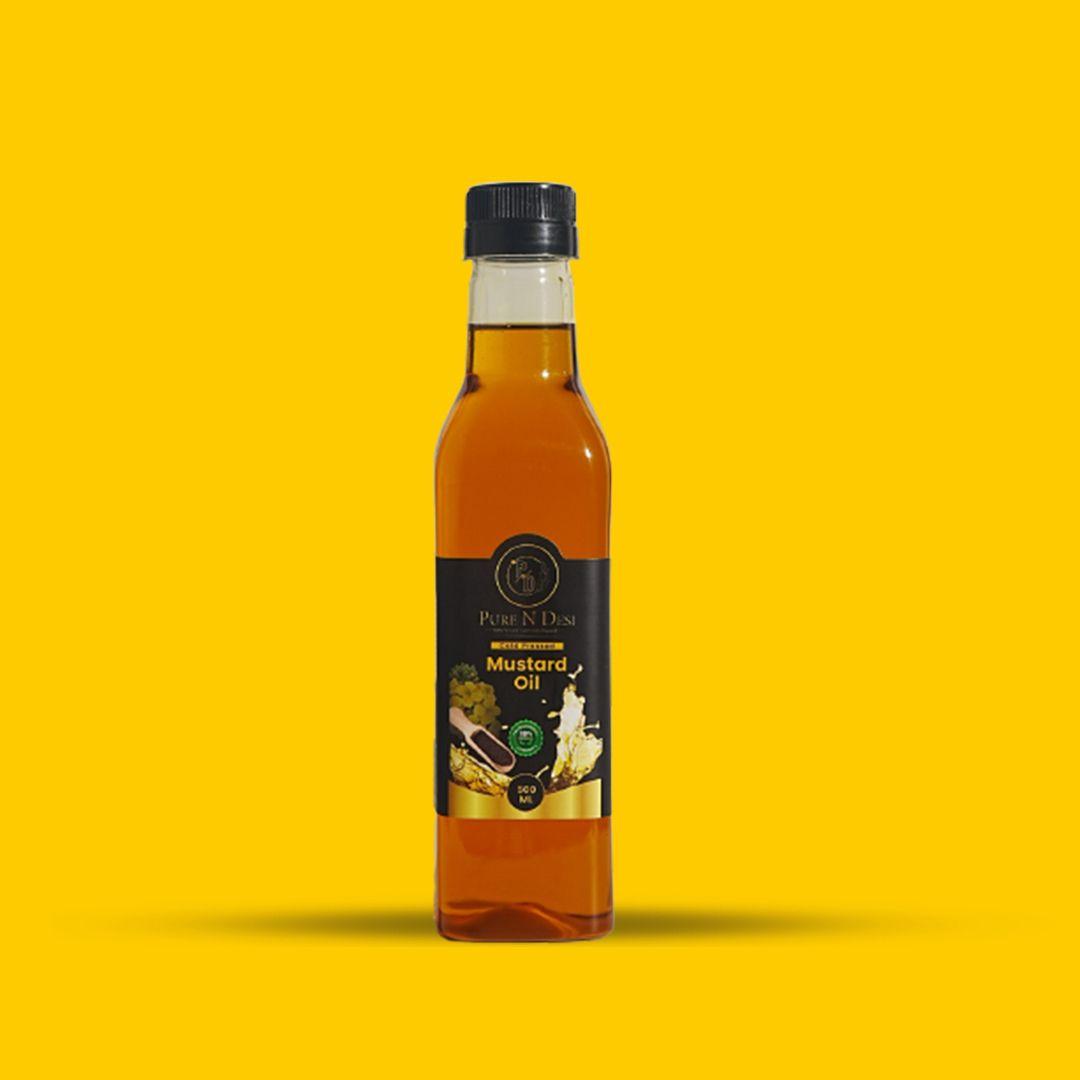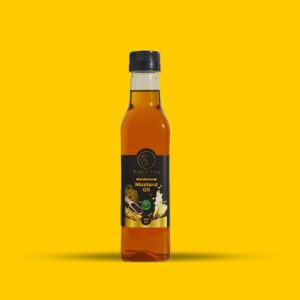
Best Cold Pressed Cooking Oil
Cold-pressed cooking oils are gaining popularity for their health benefits, rich flavors, and chemical-free extraction process. Unlike refined oils, cold-pressed oils retain their natural nutrients and antioxidants, making them a healthier choice for daily cooking. In this detailed blog, we will explore the best cold-pressed cooking oils, their benefits, uses, and how to incorporate them into your lifestyle.

What is Cold-Pressed Oil?
Cold-pressed oil is extracted by mechanically crushing seeds or nuts at low temperatures (below 49°C or 120°F). This method avoids the use of heat and chemicals, preserving the oil’s nutritional value, flavor, and aroma. In India, traditional methods like Chekku, Ghani, or Kolhu are used to produce cold-pressed oils.
Key Features of Cold-Pressed Oils
-
Chemical-Free Extraction: No solvents or heat are used during production.
-
Nutrient Retention: Rich in vitamins (E and K), antioxidants, and essential fatty acids.
-
Natural Flavor: Retains the original taste of the seeds or nuts.
-
Eco-Friendly Process: Minimal energy consumption compared to refined oil production.
Benefits of Cold-Pressed Cooking Oils
Cold-pressed oils offer numerous health benefits due to their nutrient-rich composition. Here are some of their key advantages:
1. Heart Health
Cold-pressed oils contain unsaturated fats like Omega-3 and Omega-6 fatty acids, which help lower LDL (bad cholesterol) while increasing HDL (good cholesterol). This reduces the risk of heart disease.
2. Anti-Inflammatory Properties
Rich in antioxidants like polyphenols and vitamin E, cold-pressed oils combat inflammation and protect cells from oxidative stress.
3. Improved Metabolism
Certain oils like flaxseed oil are rich in Omega-3 fatty acids that boost metabolism and aid fat burning.
4. Skin and Hair Care
Cold-pressed oils are excellent natural moisturizers for skin and hair. Coconut oil, for instance, promotes hydration and strengthens hair roots.
5. Immune System Support
The oleic acid in cold-pressed olive oil enhances immunity by supporting healthy blood pressure regulation and reducing inflammation.
Top Cold-Pressed Cooking Oils
Here’s a list of the best cold-pressed oils for cooking:
1. Cold-Pressed Coconut Oil
Coconut oil is rich in medium-chain triglycerides (MCTs) that improve metabolism and heart health. It contains lauric acid, which has antimicrobial properties. Coconut oil is ideal for medium-heat cooking and baking.
2. Cold-Pressed Sesame Oil
Sesame oil contains sesamol, a powerful antioxidant that aids in vitamin E absorption. It is also rich in Vitamin B12 and B6, making it beneficial for brain health. Sesame oil has a strong flavor perfect for Asian dishes.
3. Cold-Pressed Olive Oil
Olive oil is loaded with healthy monounsaturated fats like oleic acid that lower bad cholesterol levels. It works well in dressings, dips, and low-temperature cooking.
4. Cold-Pressed Groundnut (Peanut) Oil
Groundnut oil is a good source of vitamin E and monounsaturated fats that promote heart health. Its nutty flavor makes it suitable for sautéing vegetables or frying snacks.
5. Cold-Pressed Flaxseed Oil
Flaxseed oil is rich in Omega-3 fatty acids that boost liver function and reduce water retention in the body. It’s best used raw in salads or smoothies due to its low smoke point.
Cold-Pressed vs Refined Oils
| Feature | Cold-Pressed Oils | Refined Oils |
|---|---|---|
| Extraction Process | Low-temperature pressing | High heat & chemicals |
| Nutrient Retention | Preserved | Lost during processing |
| Additives | None | Preservatives added |
| Health Benefits | High | Limited |
| Flavor | Natural | Neutral |
Cold-pressed oils retain their nutrients because they are not exposed to high heat or chemical solvents during production. Refined oils lose most of their health benefits due to extensive processing.
How to Use Cold-Pressed Oils
Cold-pressed oils can be incorporated into your daily cooking routine in various ways:
Cooking Tips:
-
Use coconut oil for sautéing vegetables or baking desserts.
-
Add sesame oil to stir-fries or marinades for enhanced flavor.
-
Drizzle olive oil over salads or pasta dishes.
-
Use groundnut oil for frying snacks at moderate temperatures.
Skincare Routine:
-
Apply coconut oil as a moisturizer to hydrate dry skin.
-
Mix olive oil with sugar for a natural exfoliating scrub.
-
Massage sesame oil onto your scalp to reduce dandruff.
Precautions When Using Cold-Pressed Oils
While cold-pressed oils are highly nutritious, they have certain limitations:
-
Avoid using them for deep frying as high temperatures can break down their unsaturated fats.
-
Store them in a cool, dark place to prevent oxidation.
-
Always check labels to ensure the product is genuinely cold-pressed without additives.
How to Choose the Best Cold-Pressed Oil
When purchasing cold-pressed cooking oils:
-
Look for labels mentioning “cold pressed” or “wood pressed.”
-
Verify that no chemicals or preservatives are added during production.
-
Choose brands that source locally grown seeds or nuts for better quality.
FAQs
1. What is cold-pressed oil?
Cold-pressed oil is extracted from seeds, nuts, or fruits using mechanical pressure at low temperatures without the use of heat or chemicals. This process helps retain the oil’s natural nutrients, antioxidants, flavors, and aroma.
2. How is cold-pressed oil different from hot-pressed or refined oil?
Cold-pressed oils are extracted naturally at room temperature, preserving nutrients and flavor. Hot-pressed or refined oils involve high heat and chemical solvents, which strip away nutrients, add preservatives, and alter the natural taste.
3. Are cold-pressed oils healthier than refined oils?
Yes, cold-pressed oils are healthier as they retain essential nutrients such as antioxidants, vitamins (like E and K), and unsaturated fats. Refined oils lose these benefits due to extensive processing.
4. Can I use cold-pressed oils for deep frying?
Cold-pressed oils can be used for deep frying at moderate temperatures (120–150°C). However, they have lower smoke points compared to refined oils, so overheating them can degrade their nutrients and create harmful compounds.
5. Why do cold-pressed oils sometimes appear cloudy?
Cloudiness in cold-pressed oils is normal and occurs due to minimal filtration or natural sedimentation during storage. It does not affect the oil’s quality or safety for consumption.
6. Can cold-pressed oils be reused after cooking?
It is not recommended to reuse cold-pressed oils after cooking, as reheating can cause them to turn rancid and increase harmful trans-fatty acids and free radicals.
7. What is the difference between organic cold-pressed oil and regular cold-pressed oil?
Regular cold-pressed oil refers to the extraction technique but does not guarantee that organic seeds were used. Organic cold-pressed oil ensures both the extraction method and that seeds were grown without synthetic chemicals or pesticides.
8. Why do batches of cold-pressed oil vary in color?
Color variations occur due to differences in seed quality, filtration processes, or harvest conditions. Slight changes in shade are natural for unprocessed oils.
9. Which cold-pressed oil is best for cooking?
Popular choices include:
-
Coconut Oil: Great for sautéing and baking.
-
Sesame Oil: Ideal for stir-fries and marinades.
-
Olive Oil: Best for salads and low-temperature cooking.
-
Groundnut Oil: Suitable for frying snacks at moderate heat.
10. Are cold-pressed oils good for skincare?
Yes! Cold-pressed oils like coconut, olive, and sesame are excellent natural moisturizers that hydrate skin, reduce inflammation, and promote healthy hair growth.
11. Do cold-pressed oils foam during cooking?
Foaming is a natural occurrence in pure cold-pressed oils due to proteins or air bubbles present in minimally processed products. It indicates freshness rather than a defect.
12. Can I use cold-pressed oils for all types of cooking?
Cold-pressed oils are best suited for low-to-medium heat cooking methods such as sautéing, baking, or drizzling over salads. Avoid high-temperature cooking like deep frying to preserve their nutritional value.
13. How should I store cold-pressed oils?
Store them in a cool, dark place away from sunlight to prevent oxidation and maintain freshness. Ensure the bottle is tightly sealed after use.
14. Are there any precautions when using cold-pressed oils?
Avoid exposing them to high heat as it can break down unsaturated fats and reduce their health benefits. Use them within their shelf life to prevent rancidity.
15. Why should I switch to cold-pressed oils?
Switching to cold-pressed oils promotes better health by providing essential nutrients while avoiding harmful additives found in refined oils. They also offer superior flavor and support sustainable production practices.
Conclusion
Cold-pressed cooking oils are a healthier alternative to refined oils due to their nutrient retention, natural flavors, and chemical-free extraction process. Whether you’re looking to improve heart health, boost immunity, or enhance your cooking experience, these oils offer unmatched benefits.
Switching to cold-pressed oils allows you to embrace traditional practices while promoting sustainable living. From coconut oil’s metabolic benefits to olive oil’s heart-friendly properties, there’s an option for every culinary need.
Make the switch today and enjoy the goodness of nature with every meal!
